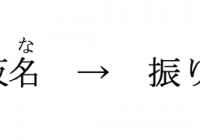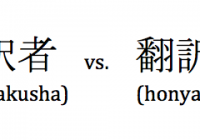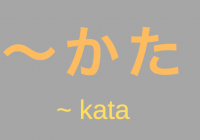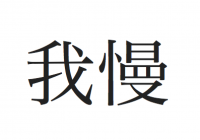Category Archives: translation
Japanese slang term: meccha “めっちゃ”
Words generally have an explicit meaning (what it says in the dictionary) in addition to an implicit meaning, also called the nuance or atmosphere of the word. When learning a foreign language it is good to understand both, and sometimes there is much more to the nuance than the explicit meaning. “Meccha” (generally written in… Read More »
Japanese word highlight: まま (mama)
When learning a foreign language, words can be grouped into two categories: those that map easily to some word in the speaker’s native language, or those that do not. The latter are, of course, generally more difficult to master. From a translation perspective, words in the second category are also often more difficult to translate,… Read More »
Removing furigana markup from Japanese text
Sometimes when working with Japanese documents you may need to remove furigana (sometimes called ‘ruby’) from a block of text. For example, you may be taking furigana-marked source text from Aozora Bunko, but don’t want to include the furigana in some other media. I had this exact problem when working on an E-book of translated… Read More »
Japanese phrase highlight: うまくやんなよ (umaku yan na yo)
When reading a Japanese novel recently I came across the following phrase: うまくやんなよ (umaku yan na yo) At first I was a little confused as to the meaning here, but eventually I figured it out. In this article I’ll go over this phrase in some detail. First is the word うまく (umaku), which is the… Read More »
What’s the difference between a 翻訳者 (‘honyakusha’) and 翻訳家 (‘honyakuka’)?
In recent years I’ve gradually transitioned from simply learning Japanese to becoming deeply interested in Japanese to English translation. Besides actually doing a lot of translations myself, I have been trying to understand how to talk about translation in Japanese, in particular understanding the nuances of various terms related to translation. As you may already… Read More »
Talking about ways of doing things in Japanese with 〜かた (~kata)
When you first learn a foreign language, you might be frustrated (or at least challenged) by how it differs from your native language. But the more you study, the more you’ll find aspects unique to that language that allow you to express things in convenient ways. In Japanese, by using the suffix かた (sometimes written… Read More »
Japanese word 我慢 (gaman): putting up with it
The Japanese word “gaman”, often written in kanji as 我慢 (or sometimes in hiragana as がまん)、is one of those words that seems conceptually simple, but doesn’t always have an easy English equivalent. “Gaman” is fundamentally about suppressing or putting up with some emotion or desire. Similarly, it can also have a nuance of enduring of… Read More »
Adverbial “~ku”(〜く)form of Japanese i-adjectives (and challenges of translating them)
Compared to English, I feel that Japanese is a grammatically pure language, meaning that there are less complex grammar rules, and those rules can be used more freely without becoming ungrammatical or awkward. For example, Japanese has much fewer verb tenses than English, and factors such as the subject are not taken into account when… Read More »
Fiction Curation for Translation
Thirteen factors I use when selecting fiction for translation projects.







